Everett Community College faculty members Spring Petta (linguistics and natural science), Jeff Fennell (environmental science and biology) and Laura Wild (nutritional science) presented at this year’s AASHE (The Association for the Advancement of Higher Learning) conference. AASHE is dedicated to advancing sustainability in higher education. This video contains their great presentation about social justice in learning outcomes. Spring Petta also introduces how our area is located in one of the most severely threatened indigenous language hotspots in the world (the Northwest Pacific Plateau) and how this impacts the community and cultural fabric of Washington State.
SEA Club Letter Writing Workshop
The SEA (students for environmental action) club will be holding another letter writing workshop on Friday October 9th at 3pm. During this workshop letters will be written to nonregistered voters in swing states mobilizing people to vote and support environmental causes.
To get letters to write visit Sierra Club(https://act.sierraclub.org/actions/National?actionId=AR0265436) or Vote Forward (https://votefwd.org ) at least 24 hours before the event.
The zoom meeting link is: https://us02web.zoom.us/j/88355732710, the meeting ID is 888 5573 2710, and the passcode is 017315.
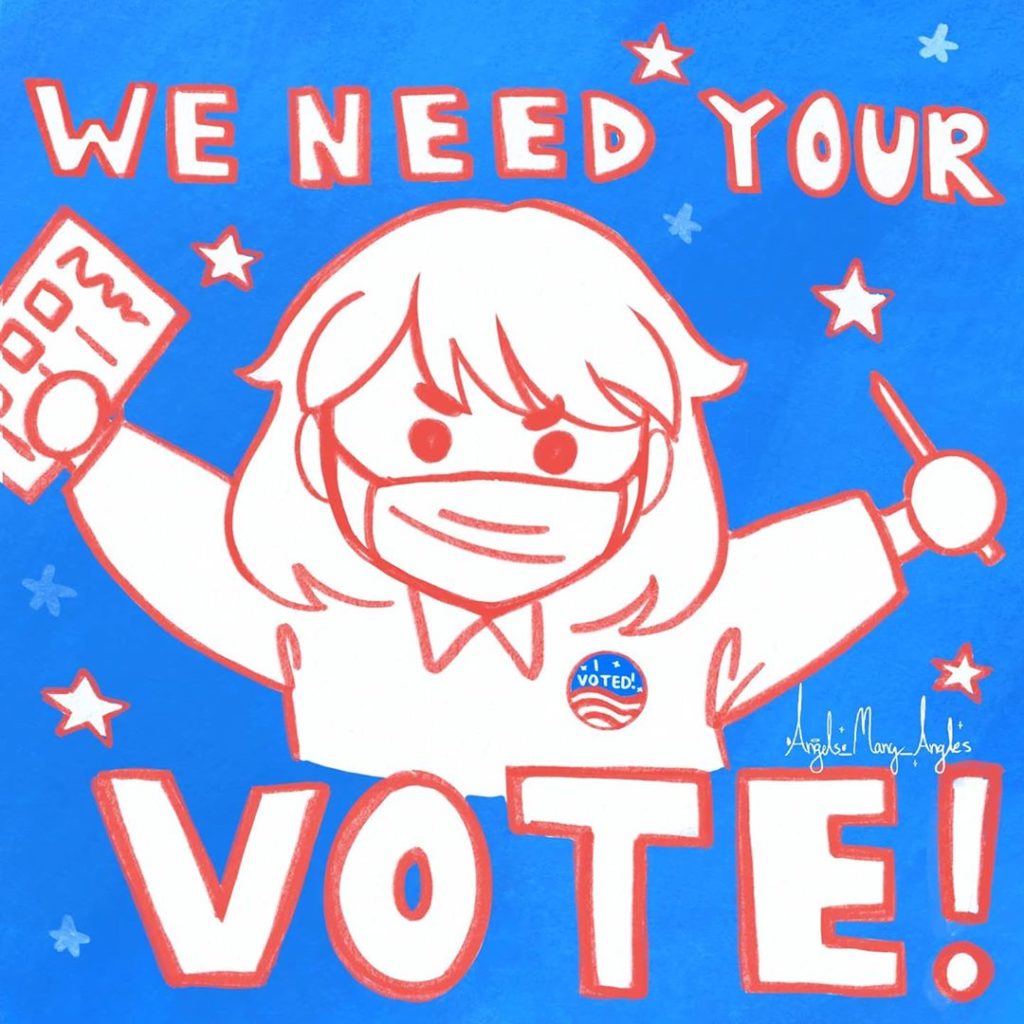
Volunteer Opportunity: Become a Salmon Watcher
Dr. Jeffery Jensen is an ichthyologist (ichthyology is the study of fish) from University of Washington Bothell and he needs volunteer salmon watchers to help view and work with salmon on streams that flow into the Sammamish River such as Bear, Lyon, Swamp, and North Creek. Dr. Jensen is studying kokanee salmon (a landlocked variation of sockeye salmon) as well as other types of salmon and fish.
If you would like to take part; visit Dr. Jensen’s blog to find all the information needed to sign up: https://jsjensenblog.wordpress.com/north-lake-washington-salmon-sightings/.
And if you ever happen to see a salmon in a local stream, fill out this survey: https://docs.google.com/forms/d/e/1FAIpQLScJAJAhW6MqHYtAveCXJAGAwJCwjMM9cZ7vUC7MCd7mNqVP-w/viewform
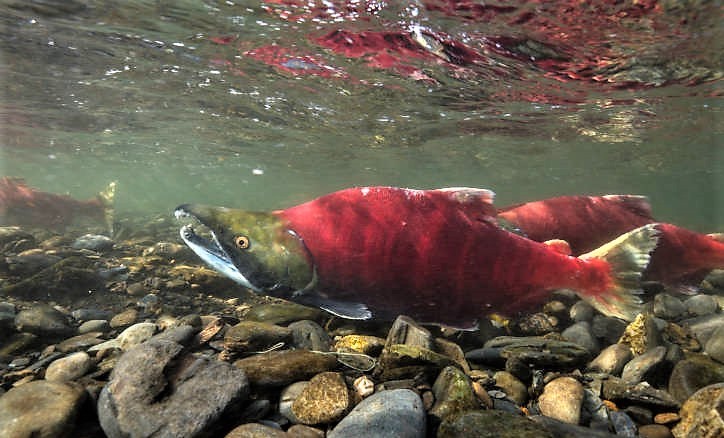
Upcoming Letter Writing Workshop
On October 3rd at 4pm, the Students for Environmental Action (SEA) and Community Kitchen club will hold a joint climate and voting activism letter writing event.
Sign up at either Sierra Club or Vote Forward to get letters to write: https://act.sierraclub.org/actions/National?actionId=AR0265436, https://votefwd.org/. To recieve the letters on time sign up at least 24 hours before the event.
To join the event use this zoom link https://us02web.zoom.us/s/88355732710. The passcode is 017315.

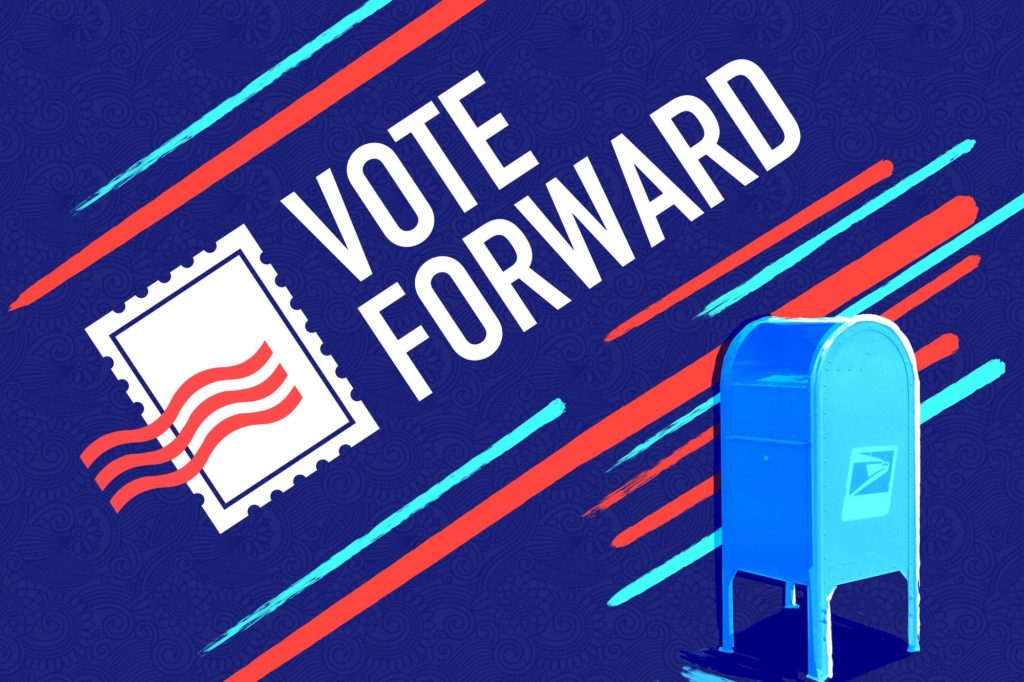
EastWest Food Rescue
This nonprofit organization’s mission is to purchase surplus food from Northwest farmers (such as Terra Gold Farms who grow potatoes) and distribute it to people in need. These rescued crops that otherwise would’ve gone to waste are helping feed people as well as helping farmers. East West Food Rescue serves over 230 food banks, community kitchens, senior centers, native tribes, school food programs, and many other helping organizations. Visit their website at https://eastwestfoodrescue.org/ to learn more about East West Food Rescue and discover opportunities to help out by becoming a volunteer.

Environmental Impact of Electric Scooters
Have you noticed the lime scooters scattered all around Everett before? Electric scooters have been around for a long time but there are still issues with them. An electric scooter generates less emissions than an SOV (200 grams of carbon dioxide per mile compared with nearly 415.) They also don’t produce any C02 or polluting emissions themselves. A study from North Carolina State University (https://iopscience.iop.org/article/10.1088/1748-9326/ab2da8) found that roughly two thirds of the time, electric scooters generate more greenhouse gases than other forms of transportation. It was found that trips on these scooters did not often replace a car, ride sharing service, or bus ride. Another large contributor are the transportation emissions used to collect these scooters for charging and distributing them across an area. The manufacturing process and raw materials used in scooters contribute to their emissions as well. The scooters often have low life spans on the street. These lead to electric scooters not being very sustainable.
Electric scooters are only sustainable when they replace other forms of transportation that create more emissions and pollutants. Work needs to be done to make them a good part of a sustainable transportation system. Ways this could be done include making changes to the manufacturing process (such as recycling old scooters and materials to make new scooters), improving the collection process (reducing distance between collection and storage points), improving the charging infrastructure (such as having them charge on a renewable energy grid and charging them when they are fully depleted), and requiring users to return the scooters to docks rather than leaving them in random places.
Thanks to a student from Learning Haven (an online elementary school) for bringing this important topic to our attention. Visit this link they found to learn more about the fascinating history of electric scooters: https://www.carcovers.com/resources/a-history-of-electric-scooters/, as well as this link to learn more about Learning Haven: http://learninghaven.org/
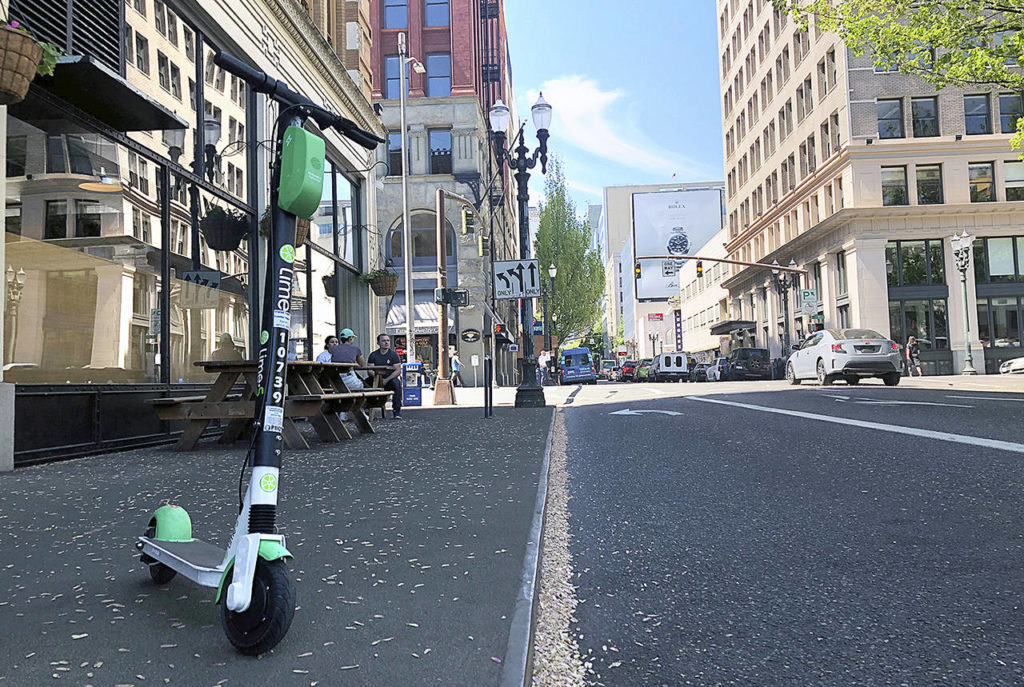

Sustainable Hiking Tips
It’s a great time to explore many of the exciting trails in our beautiful state. But it’s important to hike responsibly so we are respectful to the environment and the trails. A great framework to look at are the Leave No Trace Principles. Some of these principles include disposing of waste properly (pack in and pack out all your trash like food waste), staying on the trails to protect the landscape, not feeding wildlife, and always make sure to plan ahead for the specific area you’ll be visiting. Also remember to respect social distancing rules and bring masks during this time. Visit these links to learn more about proper trail etiquette and Leave No Trace: https://www.wta.org/go-outside/trail-smarts https://lnt.org/why/7-principles/
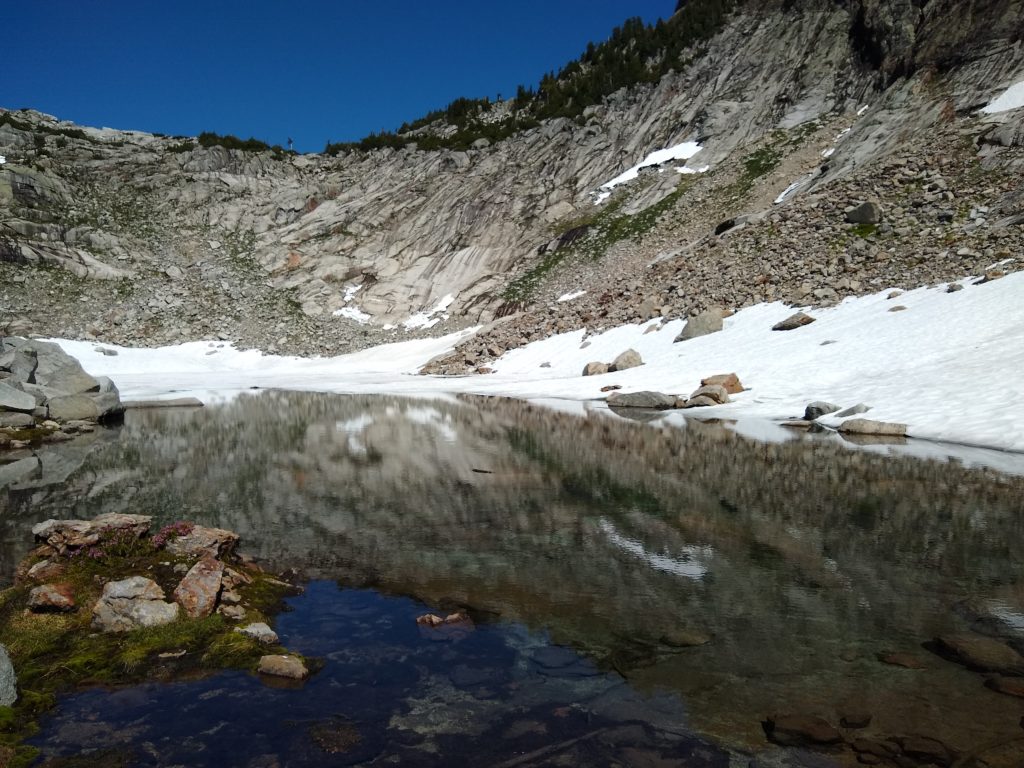
How to Calculate Your Carbon footprint
We all use energy everyday from everday actions like turnng on lights, driving, washing clothes, etc. Most of the energy we useally use is dervied from the burning of fossil fuels which produce greenhouse gas emissions(GHGs) like carbon dioxide which are released into the atmosphere. We need GHGs in our atmosphere to survive as they trap heat and absorb energy, but too much of them can lead to devestating impacts on our health, economy and the environment.
A carbon footprint is the total amount of GHG emissions produced directly or indirectly by an individual, household, organization, etc and the size of it depends on many factors like home size and types of vehicles used. You can calculate your carbon footprint and see what actions you can take to reduce it by using a carbon footprint calculator like this one: https://coolclimate.org/calculator
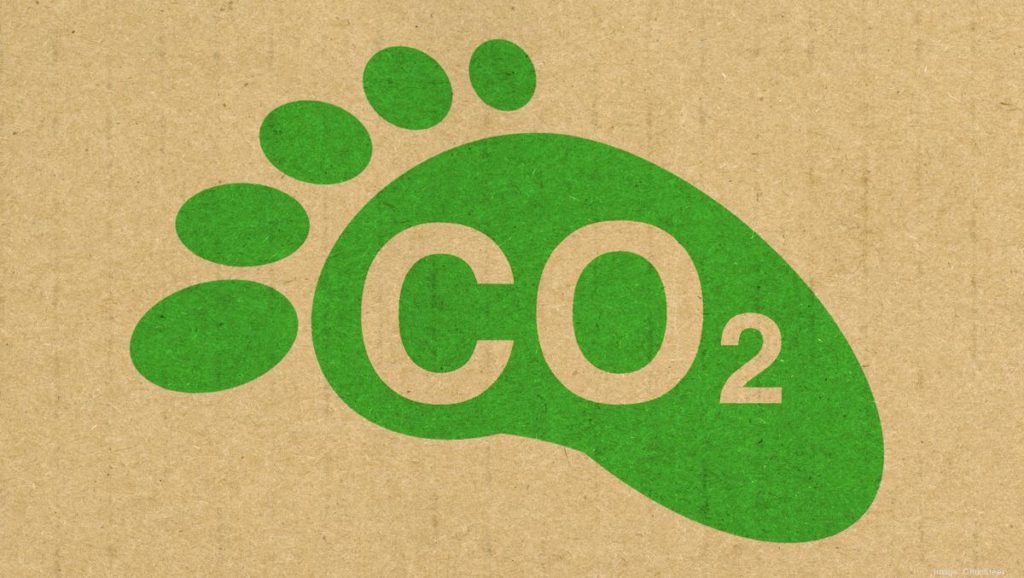
Possession Sound Student Showcase Studies
At the 8th annual Possession Sound Student Showcase and Talks (PSSST), EvCC ORCA (Ocean Research College Academy) students presented many interesting oceanic research studies. The keynote presentation from Dr. Christopher Krembs of the Washington Department of Ecology as well as posters of these studies can be viewed at the following link: https://sites.google.com/view/possessionsoundstudentshowcase

Volunteer Habitat Restoration Event
The Adopt a Stream Foundation (AASF) needs your (and up to five volunteers) help removing blackberry roots at one of their stream restoration sites on a tributary of Quilceda Creek. Invasive blackberries have taken over this site which has caused the native vegetation to become displaced. This work will help restore over one acre of native riparian vegetation and lead to improved water quality and enhanced fish habitat.
This event will be happening on July 16-17th and will take place in Arlington. Park at the shoulder 162nd St NE near 16207 67th Ave NE Arlington, WA 98223(this is the address closest to the worksite). Email walterr@streamkeeper.org for more information, or call at 425-316-8592

